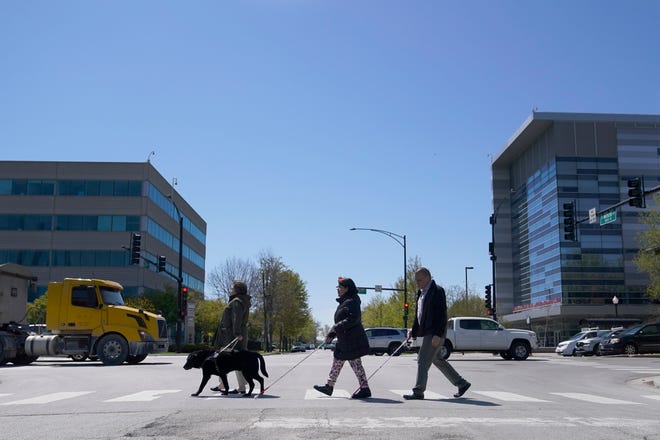The U.S. Census Bureau has put the brakes on a controversial proposal to change how it counts people with disabilities.
Opponents of the proposed changes argue that they could result in an undercounting of people with disabilities by about 40 percent and make it harder for them to obtain housing, health care and legal protections against discrimination.
After notifying the public of planned changes to the American Community Survey, the Census Bureau received more than 12,000 comments from Americans. According to Census Bureau Director Robert Santos, the majority of the comments expressed concerns about the proposed question changes.
“Based on that feedback, we plan to maintain the current disability question for the 2025 collection year,” Santos announced Tuesday in a post on the department’s website. “We will continue to work with stakeholders and the public to better understand disability data needs and evaluate what modifications are needed across the federal statistical system to better address those needs.”

How will the proposed changes affect people with disabilities?
As NPR reports, the annual American Community Survey asks respondents yes or no questions about whether they have “serious difficulties” with a range of functional abilities, including hearing, seeing, concentrating, or walking.
A new list of questions asking people to rate their difficulties with specific functional abilities would replace the current “yes” or “no” questions, a proposal that would align the U.S. with “UN international standards and advances in disability measurement,” the Census Bureau said.
As part of the proposal, the agency would count people with disabilities who answered “very difficult” or “not at all difficult” on the survey in the total number of people with disabilities, excluding those who answered “somewhat difficult.” The change could reduce the estimated percentage of the US population with some disability by about 40%, from 13.9% of the national population to 8.1%, NPR reported.
Supporters of the proposed changes argued that they would provide more detailed information and more nuanced data about disabilities, which would help determine how resources and services are allocated.

Disability advocates respond to controversial proposal
Some leading disability researchers who oppose the proposed changes published a report earlier this week highlighting the limitations of the updated questions.
“The question is not intended to measure disability or to count all people with disabilities,” the report states. “Individuals with disabilities and disability advocacy groups should be actively involved in the decision-making process, especially regarding the collection and presentation of disability data.”
Disability advocates expressed relief that the proposed changes were scrapped.
“It’s good news. It’s good news. It’s good news,” Scott Landes, an associate professor of sociology at Syracuse University who is blind, told The Associated Press. “They’ve gotten the message that we need to get involved.”
Bonnielynn Swener, director of the Johns Hopkins University Center for Disability Health Research, said in an email to ABC News that the agency’s reversal of its decision “is a victory for our community.”
She continued: “We must commit to the long-term goal of developing a better disability agenda that is more equitable and inclusive of our community.”


